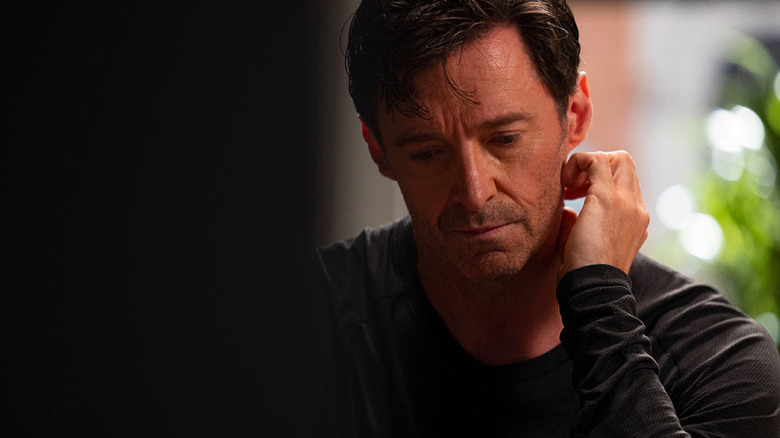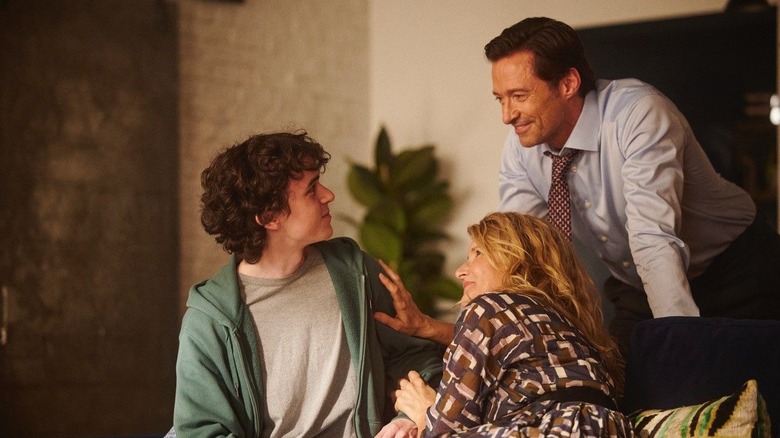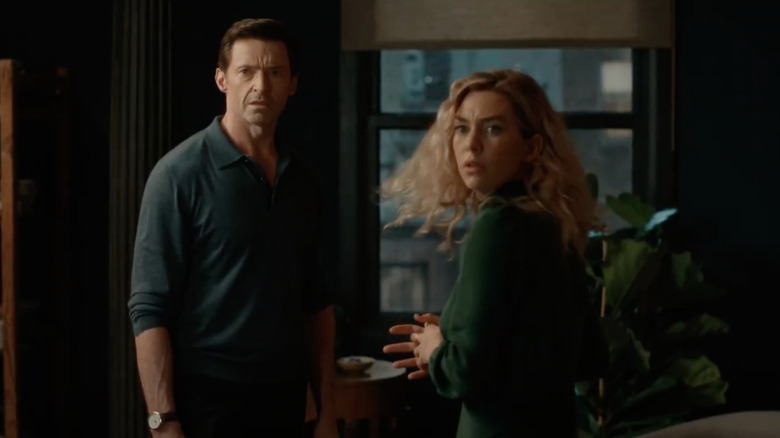The Son Review: Hugh Jackman Is Devastating In This Wrenching Portrait Of Depression [TIFF]
If you've never grappled with clinical depression, you can never really know what it truly feels like. You can understand, you can empathize, you can sympathize. But "depression" is just a word. People get "depressed" for all sorts of reasons, big and small. But clinical depression is something else. It's a disease that saps you of energy; that burns you out for seemingly no reason at all. You feel hollow; gray. Even things that you know you enjoy are fleeting, because there's always the unshakable realization in the back of your brain that sooner or later, this brief respite of enjoyment is going to end and give way to unflinching darkness again. It can feel like a terminal disease — something you keep struggling with until it eventually, possibly, kills you. I've grappled with depression for the majority of my life, and if I'm being honest, I'm not doing so well right now.
So I probably should've waited a little while to watch Florian Zeller's emotionally wrenching "The Son," the follow-up to his emotionally wrenching "The Father." (Side-note: are you okay, Florian Zeller?) While "The Father" dealt with someone suffering from dementia, "The Son" is all about depression. Specifically, the depression of 17-year-old Nicholas (Zen McGrath), a teen in the midst of a crisis. He knows he's sad; he knows he's having difficulty handling life. But it's unclear if he realizes this is some sort of disease that can be treated, or at least managed.
Nicholas' parents Peter (Hugh Jackman) and Kate (Laura Dern) are divorced, and Peter's life seems to be going great — he's just had a baby boy with his new wife Beth (Vanessa Kirby), he's a highly successful lawyer, and he's being courted to work on a political campaign. And then the rug is pulled out from under him: Kate shows up and reveals Nicholas hasn't been to school in over a month. Nicholas doesn't really have an explanation for what's going on, but he asks to come live with Peter and Beth. Peter agrees to the arrangement, especially when he notices self-inflicted scars on his son's arm. But Beth is slightly hesitant about the whole thing. Still, Nicholas moves in, and Peter naively believes this will solve everything.
Hugh Jackman's best dramatic role
Peter wants to help his son. He wants to be a good father. But he doesn't know how to grapple with Nicholas' illness. He doesn't even seem to realize it is an illness — he merely thinks of it as a bad patch; possible girl problems that Nicholas will eventually get over. Peter's not clueless — he's just never dealt with anything like this before. It likely doesn't help that he has a poor relationship with his own cruel father (Anthony Hopkins, in a brief but memorable cameo).
I often think we undervalue Jackman as an actor. That's probably not really true — he's wildly successful, incredibly likable, and very talented (and he can sing!). But it does seem like we take him for granted; that he's forever going to be associated with Wolverine. But when the actor finds the right dramatic role, he can work wonders. "The Son" might be Jackman's best dramatic performance to date; it's a quiet, reactionary role, one that requires him to look on, confused, as his entire world swirls down the drain. There are numerous shots of Jackman sitting alone, gazing off into the distance. That sort of thing can come across as pretentious, but Jackman has such confusion and pain in his eyes in these moments that he sells them completely.
Dern is also strong, although her role feels underdeveloped — the film is told almost entirely from Peter's point of view, and while Dern gets a few moments to showcase her character's growing devastation, we never really get inside her head. McGrath, as the suffering Nicholas, is frequently heartbreaking, but there are also more than a few moments where his performance lacks the emotional punch it should have.
I don't know where this sadness comes from
The subject matter of "The Son" all but guarantees a bad time at the movies. Zeller and cinematographer Ben Smithard bathe the film in harsh, cold lighting — save for a series of flashbacks to Nicholas' childhood awash in sun — that only adds to the overwhelmingly miserable feeling on display here. I understand that's going to make this a difficult watch for folks, and some might even classify this as nothing more than misery porn. But I didn't see it that way. Yes, the film is miserable — but so is struggling with depression. And it would be blatantly false to inject some sort of lighthearted solution to all these issues — because that's not how dealing with depression works. Yes, you can treat and manage the symptoms with medication and therapy. But they will never magically go away. There's not a miracle cure.
All that said, "The Son" is never quite as creative as Zeller's "The Father," which brilliantly played around with time and place to bring us into the main character's increasingly fractured mind. "The Son" is more straightforward, and while I'm not saying I wanted Zeller to repeat himself, I was hoping for something more cinematically and artistically innovative for this follow-up. Perhaps the filmmaker thought such an approach would read as trickery, and it would be better to lay this particular story out in a more linear, traditional fashion.
Whatever it lacks, "The Son" is often so emotionally devastating and so accurate in its portrayal of depression that it left me a little shaken. Have I been manipulated? Am I too close to this sort of material? Perhaps. But that doesn't change the fact that "The Son" deeply affected me. "I don't know where this sadness comes from," a character says at some point, and it's the sort of numbing, hopeless question that burrows its way into your chest and burns an ice-cold fire beneath your ribcage. Where does all this sadness come from? And how do we escape it?
/Film Rating: 8 out of 10


